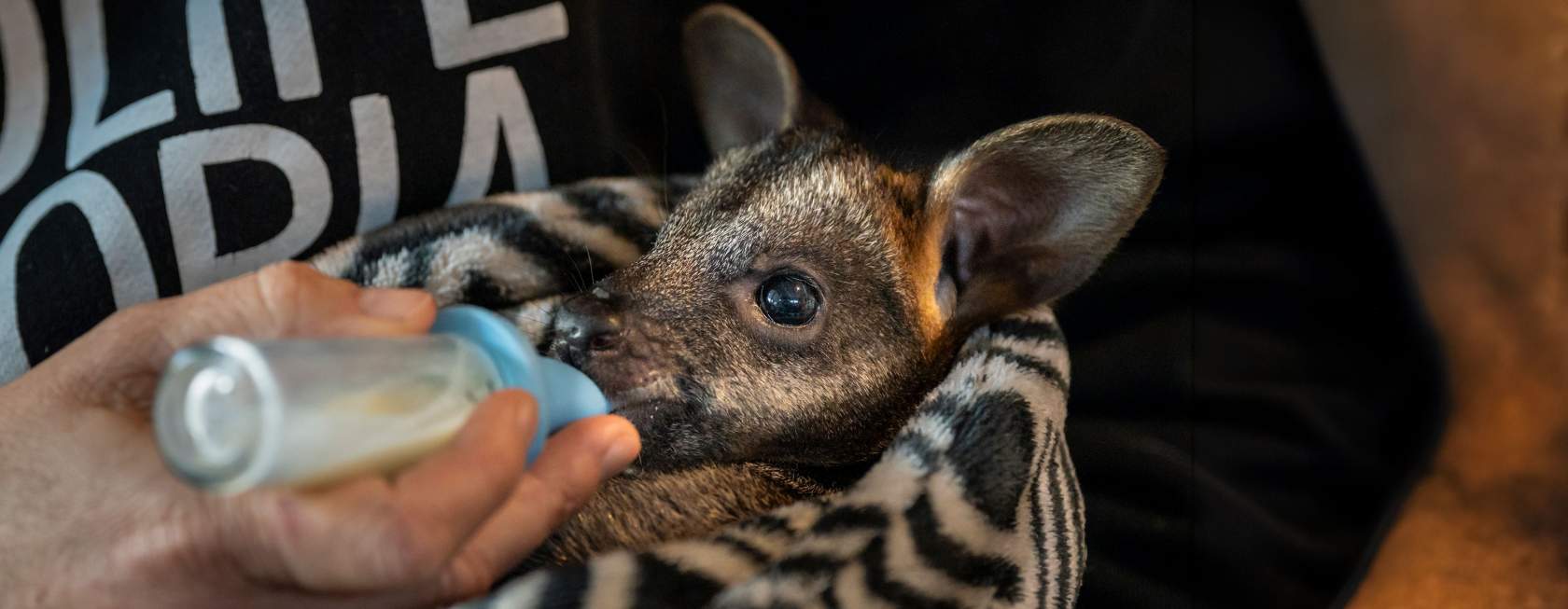
Also known as the black wallaby, the swamp wallaby (Wallabia bicolor) is Victoria’s most common wallaby species. They are a part of the macropod family, which is a form of marsupial with large hind legs, feet and tail.
Appearance
Standing between 65-85 centimetres tall, they are a smaller, stockier version of a kangaroo. They have dark brown and black fur covering their whole body with patches of rusty orange on the belly, chest and at the base of their ears.
Distribution and Habitat
Located primarily along the east coast of Australia, swamp wallabies can be found in thick forests, sandstone heath, and swamps. They avoid open environments and prefer habitats with tall grasses and shrubs for easy hiding.
Diet
Swamp wallabies are herbivores, feeding on a variety of native and non-native grasses, ferns, shrubs and leaves.
Behaviour
Unlike their cousin the kangaroo, wallabies do not live in groups. They are solitary and only come together to feed and mate.
Breeding
Female swamp wallabies are only pregnant for 35 days before the joey is born. The joey is born hairless and blind, weighing about 1 gram. After birth, they move to the pouch and stay in the pouch for approximately nine months before becoming independent at 15 months. Breeding can occur year-round.
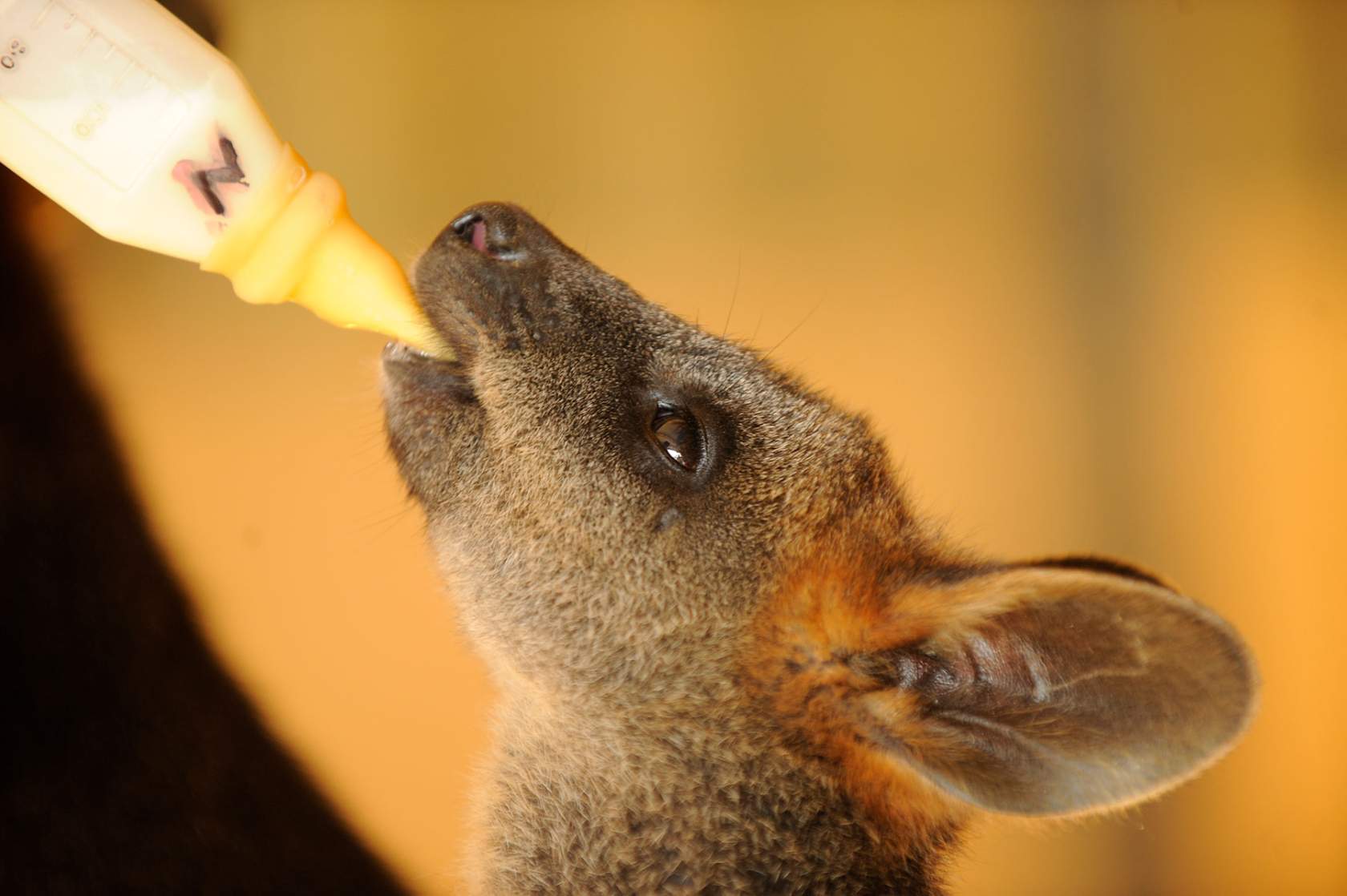
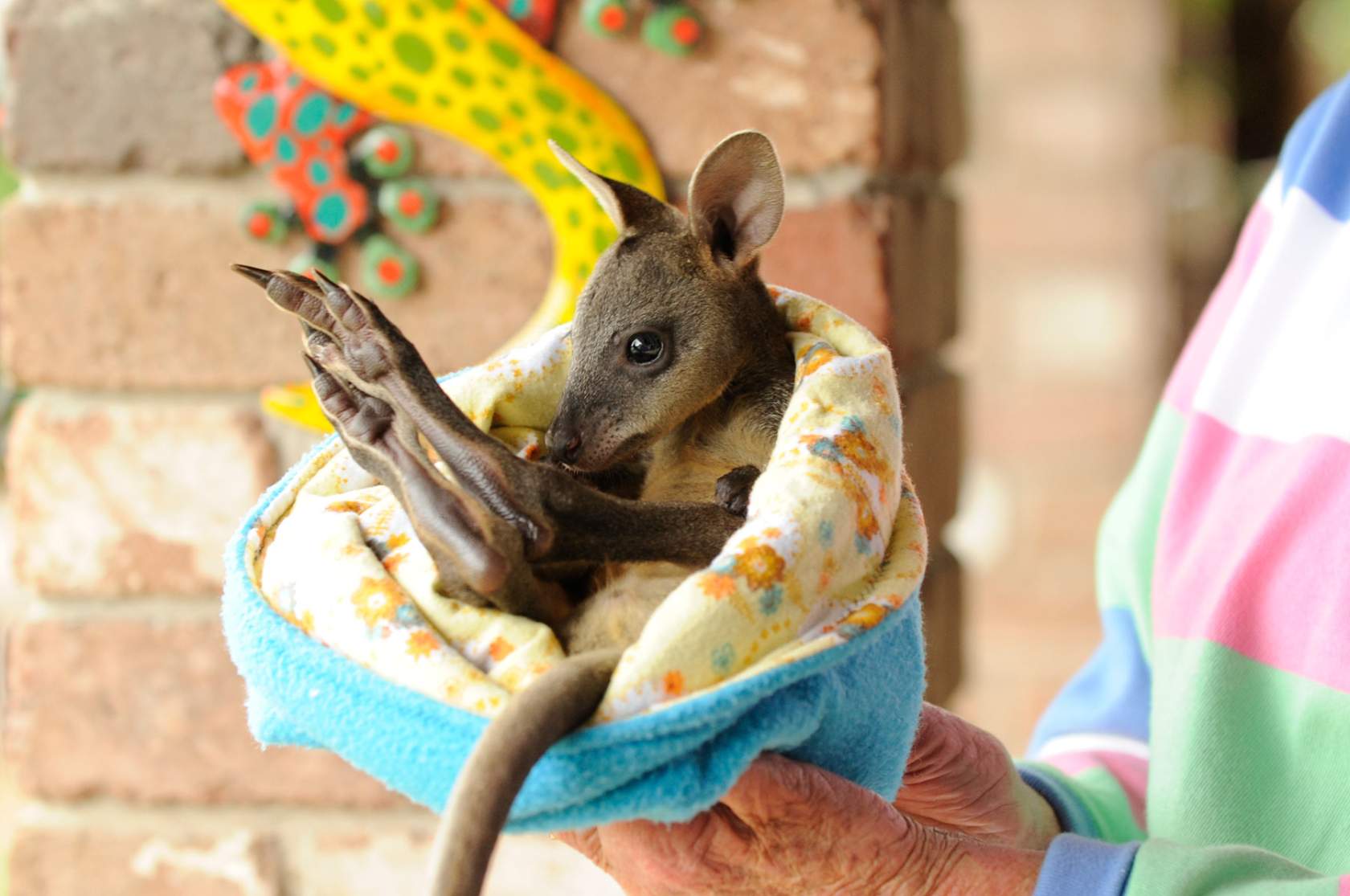
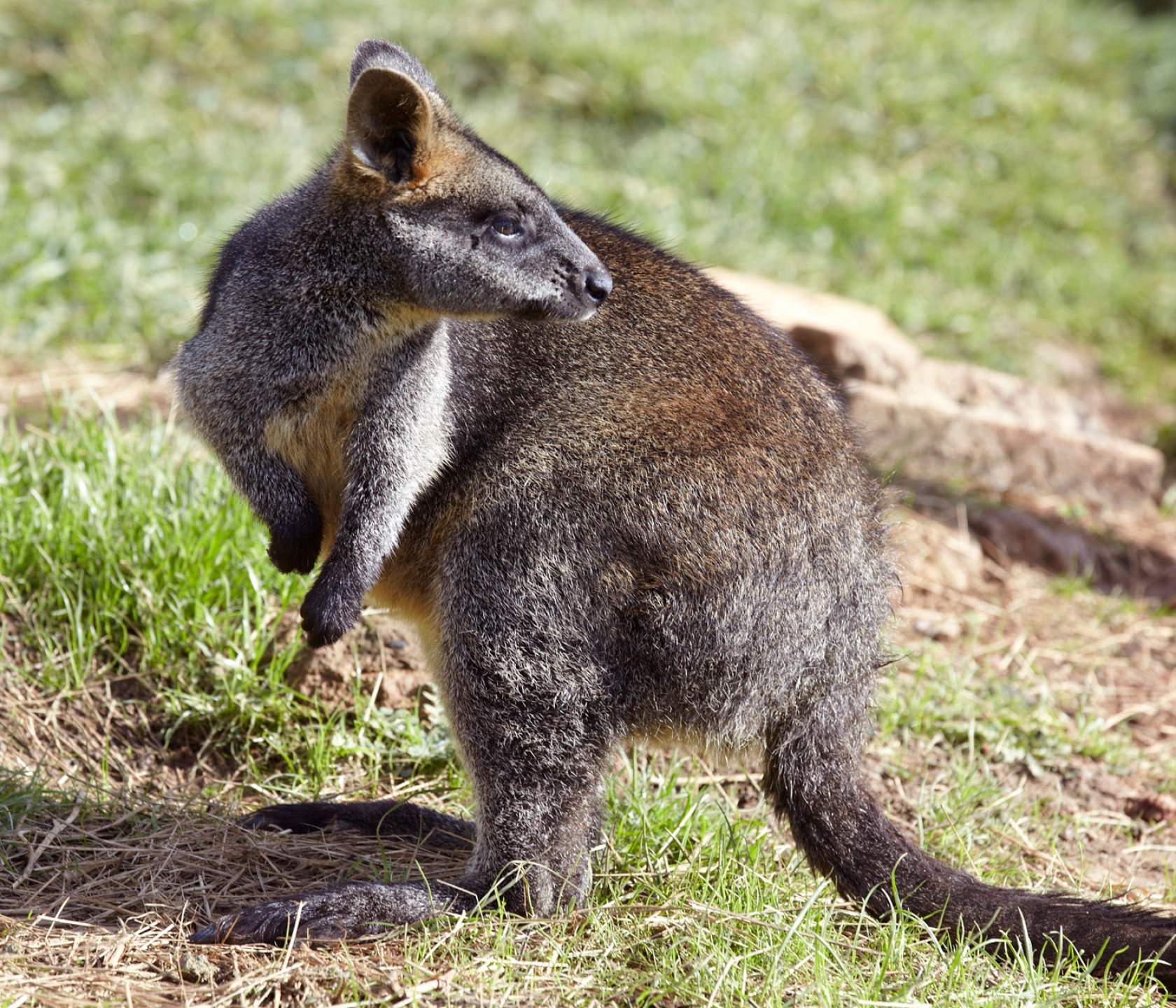
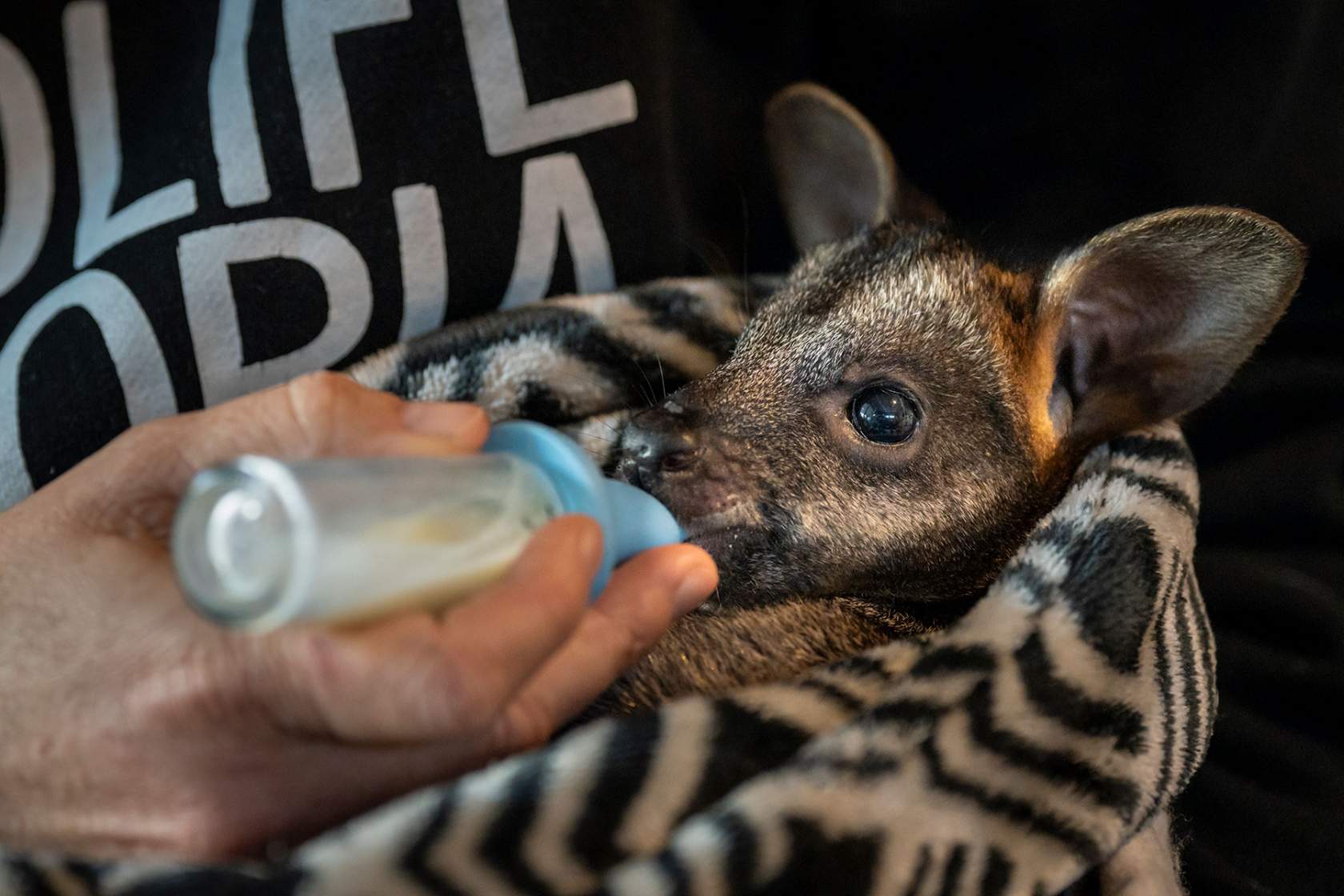
General fun facts
What can you do to help?
The most common call Wildlife Victoria receives about swamp wallabies is when an animal has been hit or killed by a vehicle. Urbanisation has resulted in a decrease of their habitat with roads cutting through their main routes of travel. Wallabies can be pushed to cross busy highways which results in either severe injury or fatality. They may also have young in the pouch who have survived the initial strike. Accidents do happen so please call our 24/7 Emergency Response Service on (03) 8400 7300 if you, or someone else, has hit a wallaby.
The next most common call received is when a wallaby has been attacked by a dog. For the safety of both native animals and your beloved pet, it’s important to walk them on a lead, especially in those areas known to be home to native animals such as swamp wallabies.
We hope that by increasing your understanding and awareness of our beautiful wildlife, you will feel empowered to manage wildlife situations confidently and in an informed, safe and appropriate manner. For support at any time, please call our 24/7 Emergency Response Service on (03) 8400 7300.
